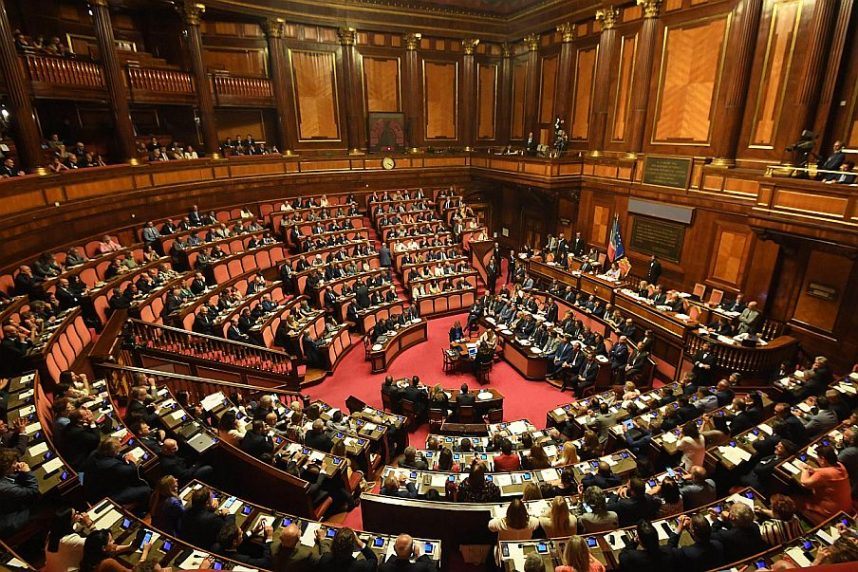Major Gambling Reforms on the Table in Italy as New Laws Come Into Force

Posted on: July 20, 2023, 07:54h.
Last updated on: July 20, 2023, 11:15h.
Italy’s Chamber of Deputies greenlighted major legislative reforms last week when it approved the country’s new Tax Delegation Law framework. Now residing in the Senate, the legislation includes an entire section on gambling, a follow-up to previous reforms that will pave the way for an almost complete overhaul of the industry.

In its session on July 12, with 182 votes in favor and 97 against, the Chamber of Deputies approved the draft laws, which the Council of Ministers had approved on March 16. They contain the changes introduced by the Finance Commission, which concluded its examination of potential reforms earlier this month.
Within 24 months from the date of entry into force of the law, the Italian government will have to adopt the legislative decrees for the revision of the tax system. This will include the gambling reforms, meaning operators have a long road of uncertainty ahead.
Unlucky Number 13
Article 13 of the Tax Delegation Law stipulates that the government must implement a “reorganization of the current provisions on public gaming.” It will do so “without prejudice to the organizational model of public games based on the concession and authorization regime.”
The legislation also indicates that a new program to combat illegal gaming will appear. The Ministry of Economy and Finance will lead the way and present an annual report to the Chamber of Deputies and Senate.
Among other measures, the primary focuses are the protection of minors and the prevention of illegal gaming. To achieve this, legislators will work to create technical and regulatory measures that are expected to guarantee full protection from gambling harm. They will also incorporate regulations to prevent gambling disorders and underage gambling.
The list of potential reforms is exhaustive, covering virtually every aspect of gambling. Among the key points under consideration are:
- A reduction of wagering and winning limits
- The continuous training of managers and operators
- The strengthening of mechanisms for self-exclusion from gaming, including a new national register
- A provision of minimum characteristics that halls and other places where the game is offered must possess
- A betting ban in amateur sports competitions reserved exclusively for minors under 18.
Another item on the list leaves a great deal of ambiguity about what lies ahead. The translated version reads, “Certification of each device, with gradual transition, taking into account the amortization period of the investments made, to devices that allow gaming only from a remote environment, forming part of non-alterable gaming systems.”
The implication could be that all machines, such as slot machines, may eventually be linked and under centralized control. At this point, the goal of the measure remains unclear.
Land-Based Gaming Loses Ground
In May, the Regional Council for the Economy and Labor of Italy’s Marche region supported an initiative to alter land-based gaming in the region. One of the measures included an alteration in the structure of land-based gambling venues and this initiative, or some variation, will become part of the national framework.
A Royal Decree already established that no new permits for gaming machines can be approved, depending on certain criteria. Specifically, they’re not allowed near nurseries or other schools, ATMs and money transfer shops, pawn shops, or hospitals.
For cities or towns with 5,000 inhabitants or fewer, gaming venues must be at least 200 meters (656 feet) “according to the shortest pedestrian route” from those locations. If the population is more than 5,000, the distance is 300 meters (984 feet).
Furthermore, local authorities can establish time slots of up to six hours a day when the venues must close. The expected goal, according to the government, is the reduction of compulsive gambling without impacting the economic stability of the property.
Several lawsuits have emerged that have tried to prevent these changes, with plaintiffs claiming that they’re unconstitutional. A recent court decision delivered the final blow to that argument and cleared a path for the implementation of the rules.
Last week, Italy’s Council of State, which has jurisdiction over all administrative authorities in the country, rejected yet another lawsuit over mandatory distancing and reduced hours. With that, not even the Italian Court of Cassation, the highest court in the country, could intervene.
Related News Articles
Source: casino.org
